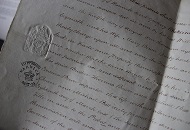The inheritance issues in Liechtenstein are dealt by International Private Law Act, the Jurisdiction Act and the Civil Code in the Principality, the first one aiming the foreigners living here. Our lawyers in Liechtenstein can offer legal advice in cases of inheritance in the country and can explain the legislation in this matter, whether you are from the Principality or you are a foreign citizen with residency and assets in Liechtenstein. The same team can offer legal support for businessmen who want to set up companies in Liechtenstein.
Table of Contents
Foreign citizens and inheritance in Liechtenstein
From the beginning, it is good to know that the nationality of a person in Liechtenstein will be an important starting point when his/her family will deal with inheritance issues. This is where IPLA (International Private Law Act) will apply, considering the official residence. It is good to know that the Liechtenstein law will also be applicable for foreign citizens with inheritance problems in the Principality, including forced heirship. This is available in marriage cases registered in Liechtenstein. The Princely Court of Justice in Liechtenstein deals with inheritance cases regarding the assets in the country which are owned by a decedent with foreign nationality. The same court decides whether a foreigner is entitled to inherit a property in Liechtenstein or not, such cases being solved in about six months.
We remind that our Liechtenstein attorneys can explain your rights in the Principality regarding the inheritance, no matter if you are a local or foreign citizen. The same team can also provide you with necessary legal support if you are a businessman who wants to set up a company in Liechtenstein.
The meaning of forced heirship in Liechtenstein
The nationality of a descendent is taken into consideration once the legacy comes in the discussion, and if the home country laws are not applicable, then the succession will be dealt in accordance with the inheritance laws in Liechtenstein.
For instance, one should agree the forced heirship where a particular share of the assets is designated for the family members. It is good to know that children and spouses are entitled to receive one-half of the appointed quota. In cases where a will is not registered, the succession is granted in accordance with the laws in Liechtenstein, where the properties are divided between the unrepresented successors like the spouse and the descendants of the deceased person.
Making a will in Liechtenstein
Overseas citizens who own assets in Liechtenstein are not obliged to make wills, as the foreign law in the country will apply. But if a foreigner does want to create a will, he/she won’t need to be present in the Principality, as this document can be drafted by a testator and signed in the presence of three witnesses.
If you want to know more details about how to make a will or about the inheritance laws applicable in the Principality, we invite you to get in touch with our law firm in Liechtenstein.

